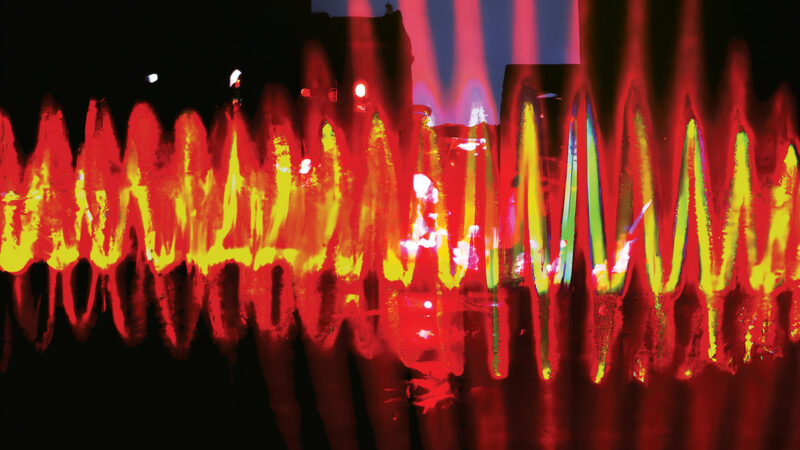Valtari is the new ethereal album from Icelandic band Sigur Ros. The group presents a mellow, introverted dreamscape of carefully selected notes and classically infused touches that are colorful in their emotional range but minimalist in musical texture. Think Bjork meets Radiohead over a cup of chamomile tea.
Opening note “Eg anda” begins calmly and softly. The falsetto lament of frontman Jonsi Birgisson is heavenly, especially when accompanied by vibration-producing bow guitars that create vowel-like effects and synth-heavy chiming. The track is hefty but not overly saturated or scattered; it is a pleasant auditory experience.
The delicate, high pitched intro on “Ekki mukk” slowly leads into the incorporated electronic strings and a gentle piano layered beneath angelic but crisp vocals. They are confusingly gender ambiguous since Jonsis’ voice possesses a feminine tonality.
“Varuo” has a slightly darker vibe but retains the same smooth tone shown in previous tracks featuring emotional (but ultimately masculine) vocals and classical elements. Once the song reaches the middle, a distantly trippy vibe surfaces and remains prominent throughout, dying down before the track concludes.
The ambient “Rembihnutur” is another chiming, detached and electric track. The use of piano is quite pleasant despite it remaining minimalist, adding just enough flavor to pleasantly command its own attention. The fluid, delicate path of the melody resembles a stream absorbing droplets on a rainy night.
“Dauoalogn” features a heavier, more mannish vocal delivery from Jonsi but is balanced out by the long-winded and distantly-muted vibe of the music. The effect is churchy, cathartic and very mellow. Following is “Veroeldur” and the similar “Rembihnutur” with barely-there piano, and a soft texture that exudes thoughtfulness.
Title track “Valtari” is industrial but not aggressive or audibly unpleasant. On the contrary, despite it’s scraping/scrapping sounds, bells and metal work, the dissonant track still comes across as a lovely attempt depicting tension that is not malicious or harmful, rather it comes across as mildly nervous and uncertain.
The last but impressionable “Fjögur píanó” is again distant, smooth and dark. Yet the slow pace of it is intentional and well illustrated. The accents on the track seem to illustrate a wordless tale, even if the exact story is unknown, but the climax is depicted with experimental and existential musical highlights.
I can’t provide any details on the lyrical content of the songs because there are no lyrics. While the band is in fact Icelandic – and had they used lyrics, they would be hard to translate – they actually sing in Vonlenska. It is a phonetic, idiomatic language that focuses on sounds and does not actually incorporate grammar, words or meaning.
Valtari is really great, but it’s not an album for everyone, nor can it be listened to at anytime or on every occasion. Its style is an acquired and rare taste and the detached, somber quality of the music can be too mellow for many listeners, especially those who don’t like or appreciate classical music.



![]() Out of 5
Out of 5
Follow Us on Twitter @ http://twitter.com/planetill
Become a citizen of Planet Ill. Join our Forums
Join Us on the Planet Ill Facebook Group for more discussion
Follow us on Networked Blogs






